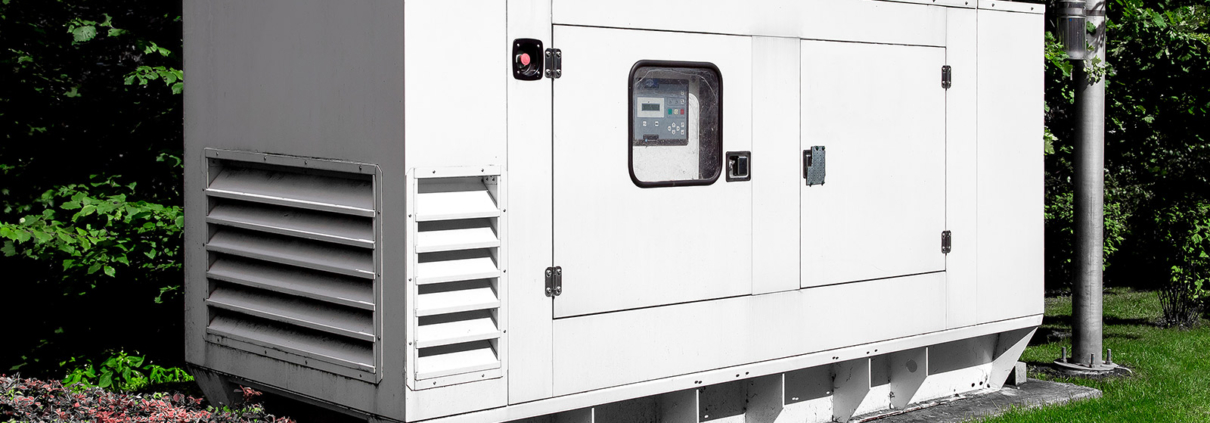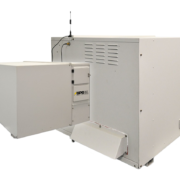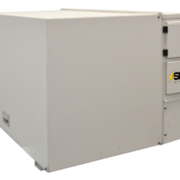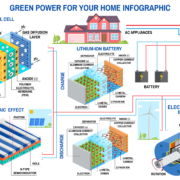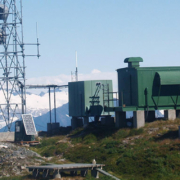Comparing Diesel Generators and SOFC Generators for Commercial Applications
With today’s increasingly unreliable grid operation, businesses are seeking reliable and efficient power generation solutions for their commercial operations. Historically, diesel generators have been the standard for power generation. Recently, more communities and organizations are considering Solid Oxide Fuel Cell (SOFC) for their continuous, auxiliary or backup power needs.
This blog post aims to provide a comprehensive comparison between diesel generators and SOFC generators, focusing on their suitability for commercial use. We will explore the key factors that businesses should consider when evaluating these two technologies for their power needs.
Comparing SOFC Generators and Diesel Generators
Comparing a diesel generator with a Solid Oxide Fuel Cell (SOFC) generator can help highlight the differences in their technology, advantages, and applications. Here are some aspects to consider when comparing the two:
1. Technology:
- A Diesel Generator operates by burning diesel fuel to drive an internal combustion engine, which then generates mechanical energy that is converted into electricity.
- An SOFC Generator uses an electrochemical process to convert fuel, such as hydrogen or natural gas, directly into electricity. It employs a ceramic electrolyte and operates at high temperatures.
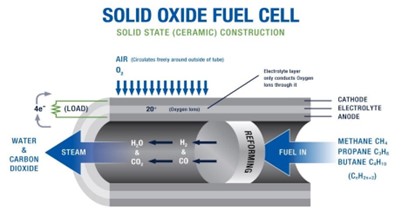
2. Efficiency:
- Diesel Generator: Diesel generators typically have an efficiency ranging from 10% to 25%, depending on the operating conditions. They lose energy in the form of heat during combustion and through mechanical processes.
- SOFC Generator: SOFC generators have higher electrical efficiency, typically between 40 and 60%. Small, stand-alone generators have slightly lower net electrical efficiencies. The high operating temperature enables better conversion of fuel into electricity, and waste heat can be captured for cogeneration applications.
Figure 1 Net electrical efficiency from SOFC vs Diesel Generators
3. Emissions:
- Diesel Generator: Diesel generators emit pollutants such as nitrogen oxides (NOx), sulfur dioxide (SO2), particulate matter (PM), and carbon dioxide (CO2). They contribute to air pollution and are considered a significant source of greenhouse gas emissions.
- SOFC Generator: SOFC generators produce electricity through an electrochemical process and have minimal emissions. When using hydrogen as fuel the only byproduct is water vapor. If hydrocarbon fuels like natural gas are used, they produce less CO2 emissions, owing to their higher electrical efficiency.
4. Fuel Flexibility:
- While diesel generators rely on diesel fuel, there are fuel-flexible options available for reciprocating generators. SOFC generators can utilize a variety of fuels, including hydrogen, natural gas, biogas, and propane. Liquid fuels can also be adapted for use such as renewable diesel. Availability and transportation logistics can be a challenge in remote or off-grid locations for any fuel type, making fuel consumption a key consideration.
5. Maintenance and Lifespan:
- Diesel generators require regular maintenance due to their internal combustion engines, including periodic (about every 3 months) oil and filter changes, and engine overhaul servicing every 2 years or less (depending on load factor – see Figure 2).
- SOFC generators have fewer moving parts compared to diesel generators, resulting in lower maintenance requirements. Field replaceable fuel cell bundles last 2 to 4 years, with other components lasting 10 years or more.
Figure 2 – Mean Time Between Overhauls for Diesel Gensets as a Function of load factor
6. Applications:
- Diesel generators are commonly used in various applications, including backup power systems, construction sites, remote areas, and as a primary power source in some cases.
- SOFC generators are suitable for stationary power generation, microgrids, distributed energy systems, and applications requiring high efficiency and long operation times, such as data centers, industrial facilities, and residential communities.
Choosing the Right Type of Commercial Generator
Choosing the right power generation solution for commercial use involves careful consideration of factors such as efficiency, environmental impact, fuel flexibility, reliability, and scalability.
While diesel generators have been widely used in the commercial sector, SOFC generators offer several advantages, including higher efficiency, reduced emissions, fuel flexibility, and long-term sustainability. As businesses strive to meet their energy needs while aligning with environmental goals, SOFC generators present a compelling alternative worthy of consideration.
Are you in need of a primary or backup power source? Discuss the potential and decide if an SOFC generator would be right for you by speaking with an SOFC expert.
1 “Optimization of the Operation of Isolated Industrial Diesel Stations”, CF Matt, LSR Vieira, GFW Soares, and LPT de Faria, 6th World Congress on Structural and Multidisciplinary Optimization, 2005

